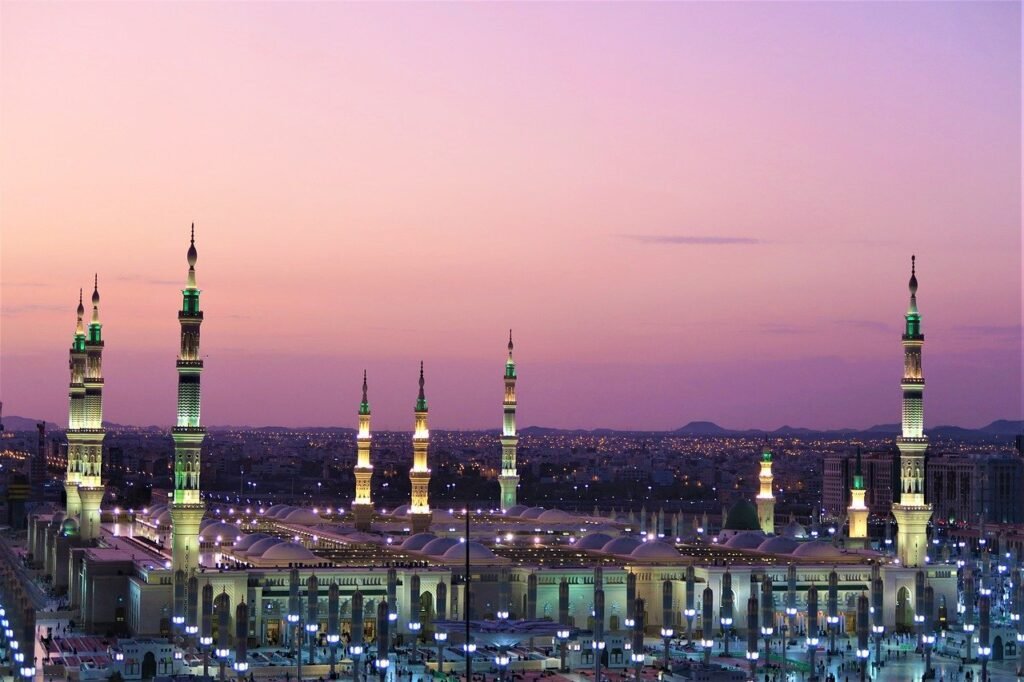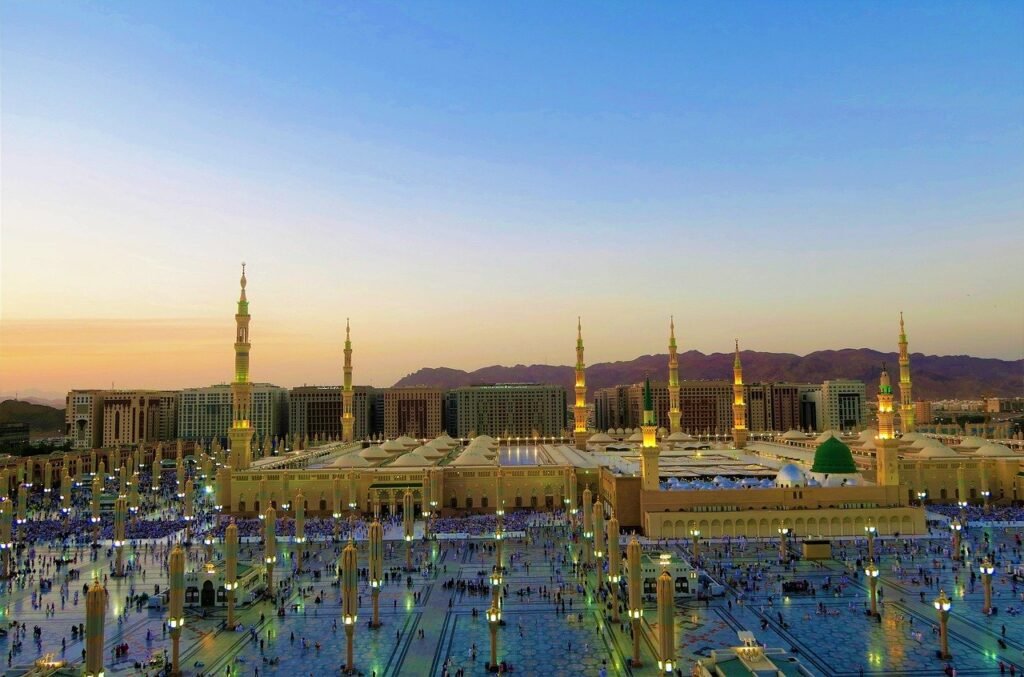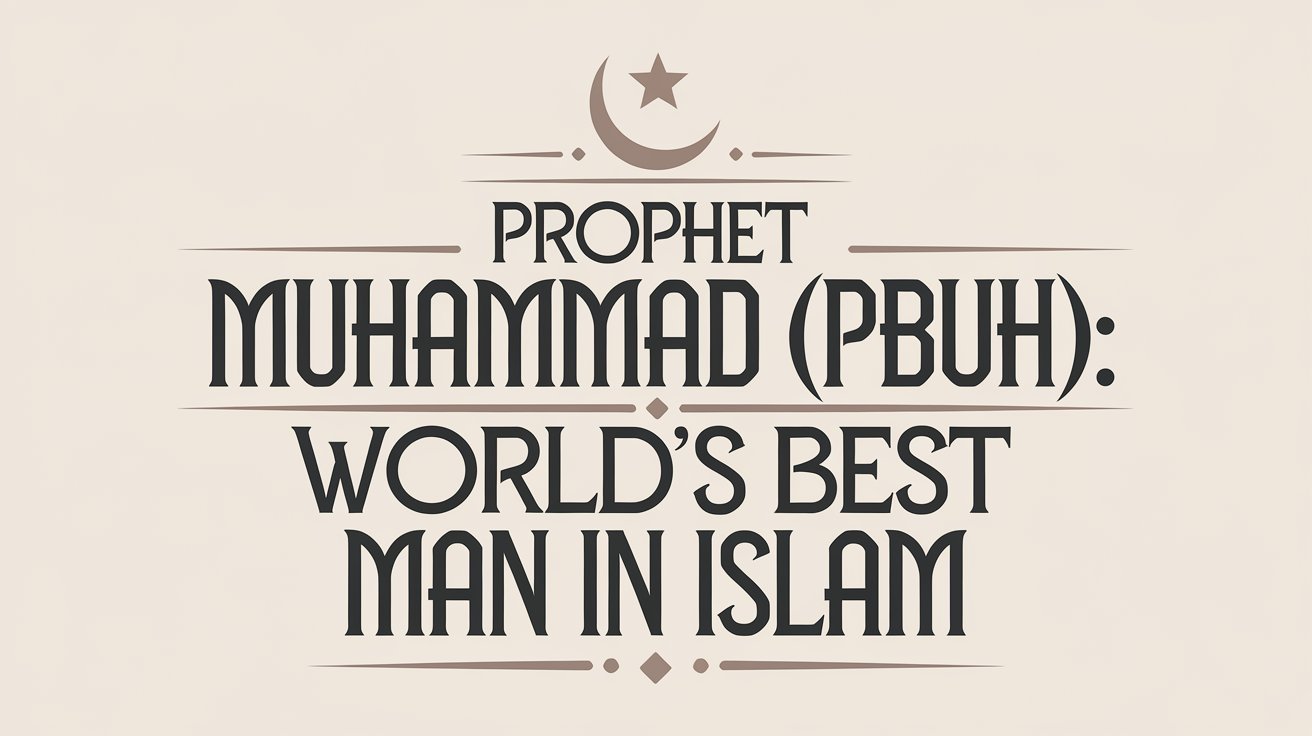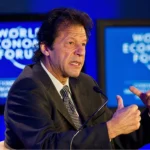Introduction
Who is the world’s best man in Islam? This question finds its ultimate answer in the person of Prophet Muhammad (peace be upon him), who is regarded as the greatest man not just in Islam but in all of human history. Revered as a Prophet, a leader, and a man of unparalleled character, Prophet Muhammad (PBUH) remains an enduring symbol of moral excellence and guidance for Muslims worldwide. His life provides a template of ideal conduct for humanity, encompassing all facets of personal, social, and spiritual life.
This article explores why Prophet Muhammad (PBUH) is hailed as the best man in Islam, delving into his virtues, his role in transforming society, and the universal principles he embodied.

Prophet Muhammad (PBUH): The Best Man in Islam
In Islamic teachings, Prophet Muhammad (PBUH) is often described as the “Seal of the Prophets” (Khatam an-Nabiyyin), denoting that he was the final and most complete messenger sent by Allah. His greatness stems not only from his prophethood but also from his exemplary life, which serves as a model for billions.
The Quranic Evidence of His Status
The Quran, Islam’s holy book, explicitly emphasizes the greatness of Prophet Muhammad (PBUH). In Surah Al-Ahzab (33:21), Allah states:
“Indeed, in the Messenger of Allah, you have an excellent example for anyone whose hope is in Allah and the Last Day and [who] remembers Allah often.”
This verse underscores that Prophet Muhammad’s life is a guiding light for believers in all aspects of their lives, from worship to interpersonal dealings.
Additionally, Allah refers to Muhammad (PBUH) as a “Mercy to the Worlds” (Surah Al-Anbiya 21:107):
“And We have not sent you, [O Muhammad], except as a mercy to the worlds.”
This title highlights his universal significance, as his teachings transcend time, geography, and cultural barriers.

His Unparalleled Moral Character
Prophet Muhammad (PBUH) was celebrated for his unmatched moral virtues, even before his prophethood. Known as Al-Ameen (the Trustworthy) and As-Sadiq (the Truthful), his honesty and integrity earned him the respect of the Quraysh tribe in Mecca.
Kindness and Compassion
The Prophet’s kindness extended to all, including non-Muslims, women, children, and even animals. He said:
“The best of you are those who are best to their families, and I am the best among you to my family.”
His treatment of orphans and the oppressed showcased his empathy. He encouraged acts of charity, forgiveness, and fairness, even in the face of hostility.
Justice and Equality
Prophet Muhammad (PBUH) was a firm advocate of justice. He abolished tribal hierarchies and discrimination, declaring:
“O mankind, your Lord is One, and your father is one. There is no superiority of an Arab over a non-Arab, or of a non-Arab over an Arab, or of a white person over a black person, except by piety.”
This principle of equality continues to inspire Muslims to uphold justice and fight against prejudice.
A Transformative Leader
Prophet Muhammad’s (PBUH) leadership transformed a fragmented society rife with tribal conflicts, idolatry, and moral decay into a unified Muslim community rooted in faith, compassion, and discipline.
The Establishment of Medina
One of his greatest achievements was the establishment of Medina as an Islamic state. He drafted the Constitution of Medina, which was revolutionary for its time, promoting religious tolerance, mutual rights, and social justice among Muslims, Jews, and other residents of the city.
Leadership in Warfare
Despite being a man of peace, Prophet Muhammad (PBUH) was also a capable strategist in times of conflict. He participated in several battles, including Badr, Uhud, and Khandaq, demonstrating courage, wisdom, and mercy even toward his enemies.
Prophet Muhammad’s (PBUH) Contributions to Humanity
The teachings of Prophet Muhammad (PBUH) extend beyond spirituality, offering practical solutions for social, economic, and ethical issues.
Women’s Rights
At a time when women were considered inferior, Islam elevated their status through the teachings of Prophet Muhammad (PBUH). He advocated for their right to education, inheritance, and consent in marriage.
He stated:
“The seeking of knowledge is an obligation upon every Muslim (male and female).”
Charity and Social Welfare
The Prophet encouraged Muslims to care for the less fortunate, establishing zakat (obligatory charity) and sadaqah (voluntary charity) as pillars of faith. He exemplified this by sharing his wealth and caring for the poor.
Ethical Trade Practices
As a merchant, Prophet Muhammad (PBUH) promoted honesty in business dealings, discouraging exploitation and fraud. His teachings remain relevant in modern commerce.

Why Prophet Muhammad (PBUH) Is the Best Role Model
The life of Prophet Muhammad (PBUH) is a living embodiment of the Quranic principles. Muslims strive to emulate his practices, known as Sunnah, in their daily lives.
Holistic Guidance
Unlike figures limited to specific fields, Prophet Muhammad’s (PBUH) legacy encompasses all aspects of life, from prayer and family life to governance and interfaith relations. His actions and sayings (Hadith) provide comprehensive guidance for all human endeavors.
An Enduring Legacy
Despite the passage of 1,400 years, the influence of Prophet Muhammad (PBUH) remains unparalleled. He ranks consistently as the most influential figure in history, as acknowledged by scholars like Michael H. Hart in his book The 100: A Ranking of the Most Influential Persons in History.
Frequently Asked Questions
Who is the world’s best man in Islam?
Prophet Muhammad (PBUH) is universally regarded as the world’s best man in Islam for his unmatched character, leadership, and contributions to humanity.
What makes Prophet Muhammad (PBUH) the best man in history?
His moral virtues, compassion, justice, and transformative leadership make him the best man in history. His teachings continue to guide billions worldwide.
What does the Quran say about Prophet Muhammad (PBUH)?
The Quran refers to Prophet Muhammad (PBUH) as a “Mercy to the Worlds” and “the best example” for humanity, emphasizing his moral and spiritual excellence.
Why is Prophet Muhammad (PBUH) a role model for Muslims?
Muslims view Prophet Muhammad (PBUH) as a role model because his life embodies the teachings of the Quran, offering guidance for personal and societal conduct.
What were Prophet Muhammad’s (PBUH) contributions to society?
His contributions include promoting justice, equality, women’s rights, ethical business practices, and establishing a cohesive, moral society.
How did Prophet Muhammad (PBUH) inspire people during his time?
Through his compassion, humility, and wisdom, Prophet Muhammad (PBUH) inspired his followers to embrace Islam and transform their lives for the better.
Conclusion
Prophet Muhammad (peace be upon him) stands as the greatest man in Islam and the broader scope of human history. His exemplary character, leadership, and timeless teachings make him a beacon of light for Muslims and non-Muslims alike. By embodying values like compassion, justice, and integrity, he set a standard that remains unparalleled. Prophet Muhammad’s (PBUH) life is not just a chapter in history; it is a universal guide to achieving personal and societal excellence.
For anyone seeking the answer to “Who is the world’s best man in Islam?” the life and legacy of Prophet Muhammad (PBUH) provide a resounding and unequivocal answer.










